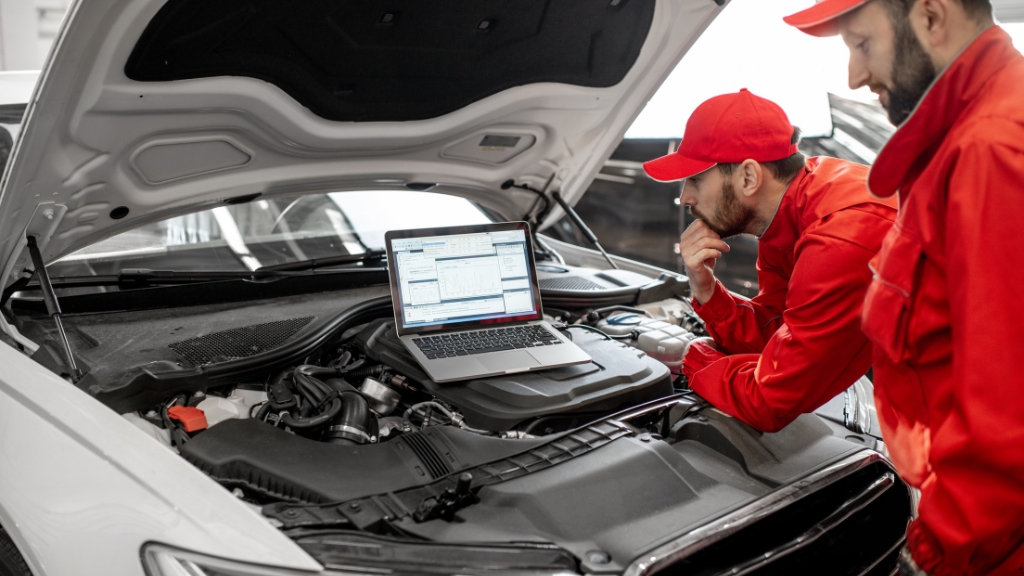Owning a car comes with its fair share of advice, but not all of it is as reliable as it seems. Over the years, I’ve heard countless tips that sound convincing yet don’t hold up under scrutiny. These so-called “rules” can lead to unnecessary expenses or even harm your vehicle in the long run.
That’s why I’ve turned to real experts to separate fact from fiction. From oil change misconceptions to fuel-saving myths, it’s time to debunk the most common car maintenance advice that’s been steering us in the wrong direction. Knowing the truth can save you money, time, and a whole lot of frustration.
Common Car Maintenance Myths
Misinformation about car maintenance can cause confusion and unnecessary expenses. Understanding which advice is outdated or incorrect can help avoid these issues.
Myth: You Need to Change Your Oil Every 3,000 Miles
Oil changes at 3,000 miles are often unnecessary for modern vehicles. Many cars can safely go 5,000 to 7,500 miles between oil changes, depending on the manufacturer’s recommendations and oil type. Synthetic oil users may extend this interval even further, sometimes up to 15,000 miles. Always check your car’s manual for specific guidance instead of relying on outdated advice.
Myth: Premium Gasoline Improves Performance for All Cars
Using premium gasoline doesn’t enhance performance unless a car explicitly requires it. Vehicles designed for regular unleaded fuel won’t benefit from the higher octane levels in premium fuel. Premium gas is formulated for engines with high compression ratios to prevent knocking and boost efficiency, which standard engines don’t encounter. Refer to your owner’s manual to confirm your vehicle’s fuel grade requirements.
Myth: Warming Up Your Car Is Always Necessary
Letting a car idle for long periods isn’t required for most modern engines. Advances like electronic fuel injection ensure engines don’t rely on extended idling to reach operating temperatures. Driving gently for the first few minutes warms the engine more efficiently than idling. Exceptions apply in extremely cold conditions where idling for a minute or two can help with proper function. Always prioritize weather-specific needs if applicable.
Expert Insights on Oil Changes
Oil changes are a vital part of car maintenance, but misinformation often complicates things. I’ve broken down key facts about oil changes based on expert advice.
When Should You Really Change Your Oil?
Oil change intervals depend heavily on the vehicle and oil type. Modern vehicles commonly recommend changes every 5,000 to 7,500 miles, with synthetic oils sometimes extending intervals up to 10,000 miles. I always check the owner’s manual for precise recommendations instead of relying on outdated 3,000-mile advice.
Older cars or those using conventional oils may have shorter intervals. Extreme driving conditions, such as towing or stop-and-go traffic in hot climates, can also warrant more frequent changes. Manufacturers often provide guidelines for such situations.
How Driving Habits Influence Oil Change Intervals
Driving patterns directly affect oil lifespan. Short trips where the engine doesn’t fully warm up cause moisture to accumulate, degrading oil faster. Frequent stop-and-go traffic leads to higher engine stress, reducing oil performance.
Long highway drives at steady speeds create less oil strain, which usually extends intervals. I consider my daily driving habits when assessing oil change frequency to prevent unnecessary maintenance.
Truth About Fuel Choices
Choosing the right fuel for your car impacts both performance and costs. Misunderstandings about fuel types often lead to unnecessary spending.
Understanding Octane Levels
Octane ratings measure fuel’s resistance to knocking during combustion. Regular gasoline typically has an octane rating of 87, mid-grade fuel is around 89, and premium fuels range between 91 and 94. Higher-octane fuels are engineered for high-compression or turbocharged engines, minimizing engine knock under pressure. Most vehicles operate efficiently on regular gasoline, as their engines are designed for it.
Using higher-octane fuel doesn’t boost engine performance or fuel economy in cars designed for regular fuel. For example, a standard sedan programmed for 87 octane won’t see benefits from 91 octane fuel. The vehicle’s manual specifies the required octane level, and following it ensures optimal performance.
When Premium Gasoline Is Worth It
Premium gasoline is necessary when recommended or required by the vehicle’s manufacturer. High-performance vehicles, luxury cars, and some turbocharged engines depend on premium fuel to prevent pre-ignition and maintain power output. A Ford Mustang GT, for instance, performs best with premium gas due to its high-compression engine.
Using regular gasoline in engines requiring premium can reduce fuel efficiency, decrease engine power, and lead to long-term engine damage. However, if higher-octane fuel is labeled as “recommended” but not “required”, regular fuel may still be used without risking harm. Always verify fuel requirements in the owner’s manual to avoid unnecessary expenses.
Engine Warm-Up Myths Explained
Beliefs about warming up cars often stem from outdated practices. Modern engines and advanced technologies have rendered most traditional advice irrelevant.
Modern Engines vs. Older Models
Modern engines function differently compared to older models. Vehicles from decades ago used carburetors, requiring idling to warm up for optimal performance. Modern engines rely on electronic fuel injection systems, which achieve ideal air-fuel mixtures regardless of temperature. Driving gently after starting a car is more effective, as it allows the engine to warm up faster and reduces fuel waste.
Older vehicles with carburetors may still benefit from idling for 1-2 minutes in cold weather, especially below freezing temperatures. However, these cars are rare compared to the majority of today’s vehicles designed with modern technology.
Fuel Efficiency and Prolonged Idling
Prolonged idling impacts fuel efficiency negatively. A running engine consumes fuel without moving the car, wasting gas unnecessarily. Idling for over 10 seconds uses more fuel than restarting the engine, according to the U.S. Department of Energy.
Excessive idling also increases engine wear by causing incomplete combustion and carbon buildup, particularly in newer vehicles designed to run cleanly. Driving gently is a more efficient way to warm up the engine and avoid these issues.
Additional Maintenance Myths to Watch Out For
Misunderstandings about car maintenance often lead to costly mistakes. By identifying the myths, drivers can avoid unnecessary actions and focus on what truly benefits their vehicles.
Cleaning Air Filters Improves Performance Always
Air filter maintenance is essential, but cleaning doesn’t guarantee improved performance in every situation. Modern vehicles often use advanced air intake systems where a partially dirty filter has minimal impact on performance unless it’s heavily clogged. Over-cleaning or improper handling, like using excess oil on reusable filters, can damage sensors and reduce efficiency. Instead, I recommend inspecting filters according to the manufacturer’s schedule and replacing them as needed.
More Frequent Tune-Ups Lead to Better Engine Health
Tune-up frequency depends more on vehicle age and technology than on performing it excessively. Modern engines designed with advanced ignition systems and long-lasting components require tune-ups at intervals specified in the owner’s manual, often every 30,000 to 100,000 miles. Older cars might need these services more often, but unnecessary adjustments can disrupt engine performance. It’s more efficient to follow the manufacturer’s recommendations and address issues as they arise.
Benefits of Following Expert Advice
Relying on expert knowledge for car maintenance ensures accurate, cost-effective, and vehicle-specific recommendations. It eliminates guesswork, improves efficiency, and helps avoid unnecessary repairs.
Saving Money with Accurate Maintenance
Expert advice lowers overall costs by avoiding unnecessary services and focusing on precise maintenance. For example, experts clarify that many modern cars only require oil changes every 5,000 to 7,500 miles, or even up to 10,000 miles with synthetic oil, reducing oil change frequency. They also debunk misconceptions like the need for premium gasoline in vehicles designed for regular fuel, saving hundreds annually by preventing overpaying at the pump. Additionally, consulting professionals avoids costly mistakes, such as using the wrong fluids or neglecting manufacturer-specified schedules.
Extending Your Car’s Lifespan
Following expert-guided maintenance schedules prolongs your vehicle’s operational life. Professionals emphasize timely inspections, like checking air filters only as recommended, ensuring optimal engine performance without over-cleaning. They also provide precise tuning intervals, typically every 30,000 to 100,000 miles for modern engines, avoiding excessive or inadequate adjustments. Adhering to expert recommendations, such as driving gently to warm up engines instead of extensive idling, reduces unnecessary engine wear and promotes long-term durability.
Conclusion
Car maintenance doesn’t have to be overwhelming or filled with misinformation. By relying on expert advice and understanding your vehicle’s specific needs, you can save money, time, and avoid unnecessary stress. It’s all about making informed decisions based on facts, not outdated myths.
Your car’s manual is one of the best resources for accurate guidance, so don’t overlook it. Whether it’s oil changes, fuel choices, or warming up your engine, trusting proven practices ensures your vehicle stays in top condition for years to come.



